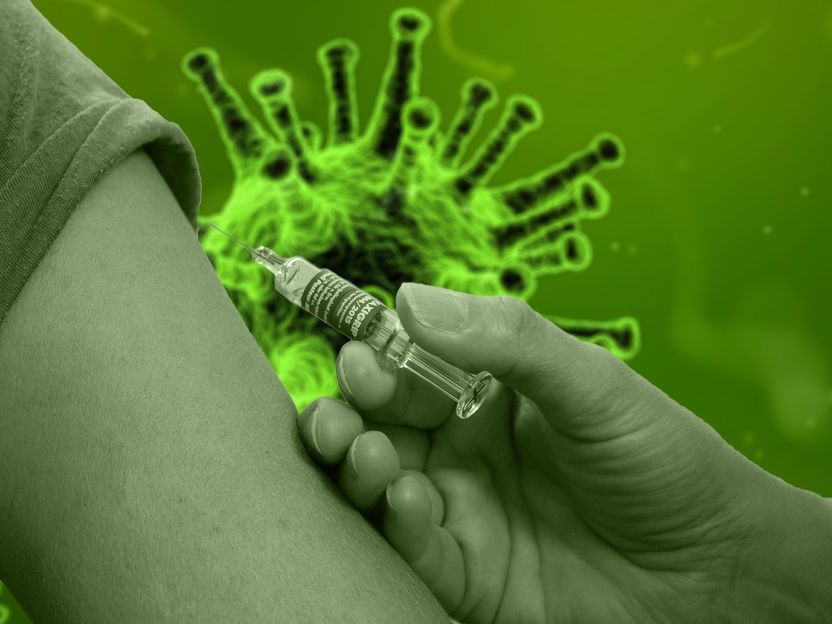CureVac Reports Positive Interim Phase 1 Data for its COVID-19 Vaccine Candidate
On track to initiate pivotal Phase 2b/3 before end of 2020
CureVac N.V. announced positive interim data from its ongoing Phase 1 dose-escalation study evaluating the safety, reactogenicity and immunogenicity of CVnCoV, its investigational SARS-CoV-2 vaccine candidate. The vaccine candidate was generally well tolerated across all tested doses (2-12µg) and induced strong binding and neutralizing antibody responses in addition to first indication of T cell activation. CureVac intends to provide a detailed Phase 1 data overview and publication in a scientific journal in the coming weeks. CVnCoV is currently also being investigated in a Phase 2a clinical trial in older adults in Peru and Panama.

Symbolic image
TheDigitalArtist, pixabay.com
“We are very encouraged by the interim Phase 1 data. It represents a critical milestone in our COVID-19 vaccine program and strongly supports the advancement of our vaccine candidate,” said Dr. Franz-Werner Haas, Chief Executive Officer of CureVac. “Following further data readouts and discussion with regulatory authorities, we remain fully committed and on track to initiate a pivotal Phase 2b/3 trial before the end of 2020.”
The Phase 1 study has enrolled to date more than 250 healthy individuals aged 18 to 60 years. Individuals were vaccinated intramuscularly with CVnCoV at escalating dose levels of 2, 4, 6, 8 and 12µg on days 1 and 29. Per dose level, the trial included up to 10 participants who had previously tested positive for a COVID-19 infection (seropositives) to further evaluate the safety and immunogenicity of CVnCoV in this sub-population.
The data support the decision to advance the 12µg dose in the upcoming pivotal Phase 2b/3 study.
Immunogenicity data showed induction of binding antibody titers, translating into relevant titers of virus neutralizing antibodies at all tested dose levels. Geometric Mean Titers (GMTs) of binding and neutralizing antibodies of study participants were compared to peak serum titers of 67 symptomatic convalescent COVID-19 patients (human convalescent sera, or HCS). The applied HCS panel was composed to provide a medically relevant comparator to validate CVnCoV potency. The panel was highly representative of the immune activation of seriously ill patients with multiple symptoms of whom approximately 24% were hospitalized.
At 12µg, GMTs of binding antibodies increased to the level measured in the HCS panel. Virus neutralizing antibodies increased to HCS levels at 12µg and were measured in a live-virus micro-neutralization assay. Analysis of T cell mediated immunity is ongoing. Early data show indications of functional T cells confirming activation of cellular immune response.
“These initial data show a robust and highly efficient immune response to our natural mRNA-based CVnCoV vaccine candidate, including antibody and initial T cell responses at the level of a relevant panel of symptomatic convalescent patients,” said Dr. Mariola Fotin-Mleczek, Chief Technology Officer of CureVac. “We are grateful to all study volunteers who are helping to enable the development of a vaccine that will provide the best possible protection for people.”
CVnCoV’s unique mode of action mimics the natural immune response to the infection observed in recovered COVID-19 patients. This is reflected in the relative proportion of neutralizing to binding antibody levels, which are similar in vaccinated individuals and convalescent patients.
“The data are highly encouraging,” said Prof. Dr. Peter Kremsner, Director of the Institute of Tropical Medicine of the University of Tübingen and lead investigator of the Phase 1 trial. “In this accelerated development program, it is paramount to ensure safety while generating a favorable level of immunogenicity. With this study, we had a strong focus on identifying the optimal dose for CVnCoV and we have succeeded in that.”
Reactogenicity of CVnCoV was continuously monitored by a Data and Safety Monitoring Board, and the vaccine was generally well tolerated across all tested doses. No related serious adverse events were observed. At 12µg, grade 3 adverse events occurred mostly after administration of the second dose and included fatigue, headache, chills, muscle pain, and to a lesser extent, fever. All reported events were transient and resolved rapidly, usually within 24 to 48 hours.
Formulation of CVnCoV is based on state-of-the-art lipid nanoparticle (LNP) technology licensed from CureVac’s long-standing partner Acuitas Therapeutics.

























































